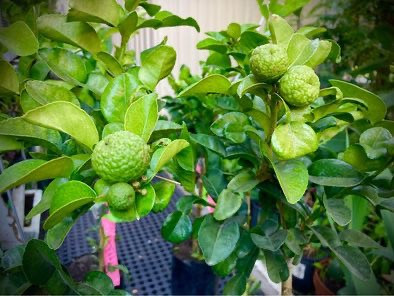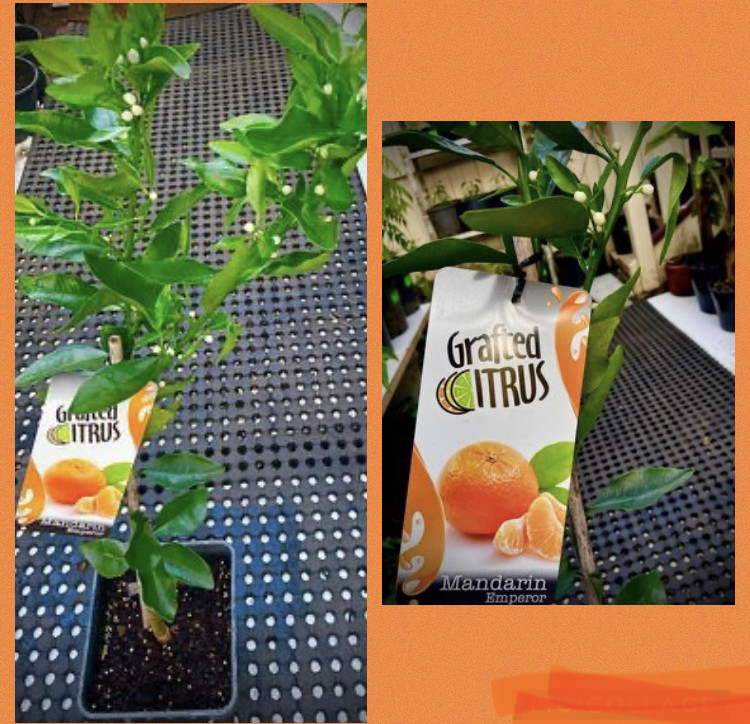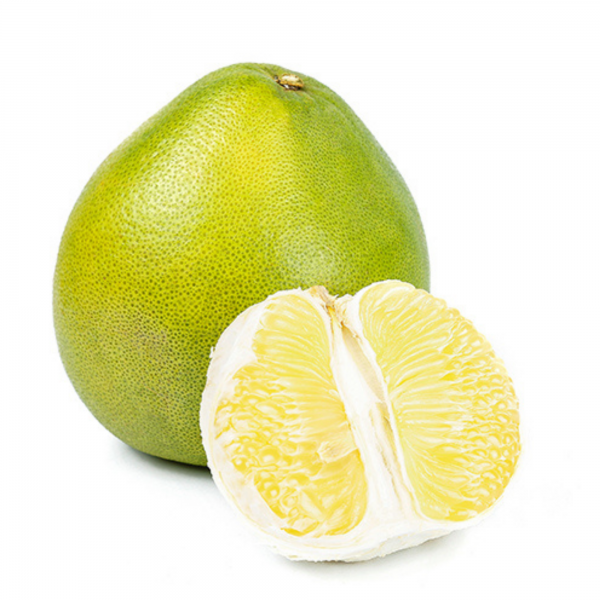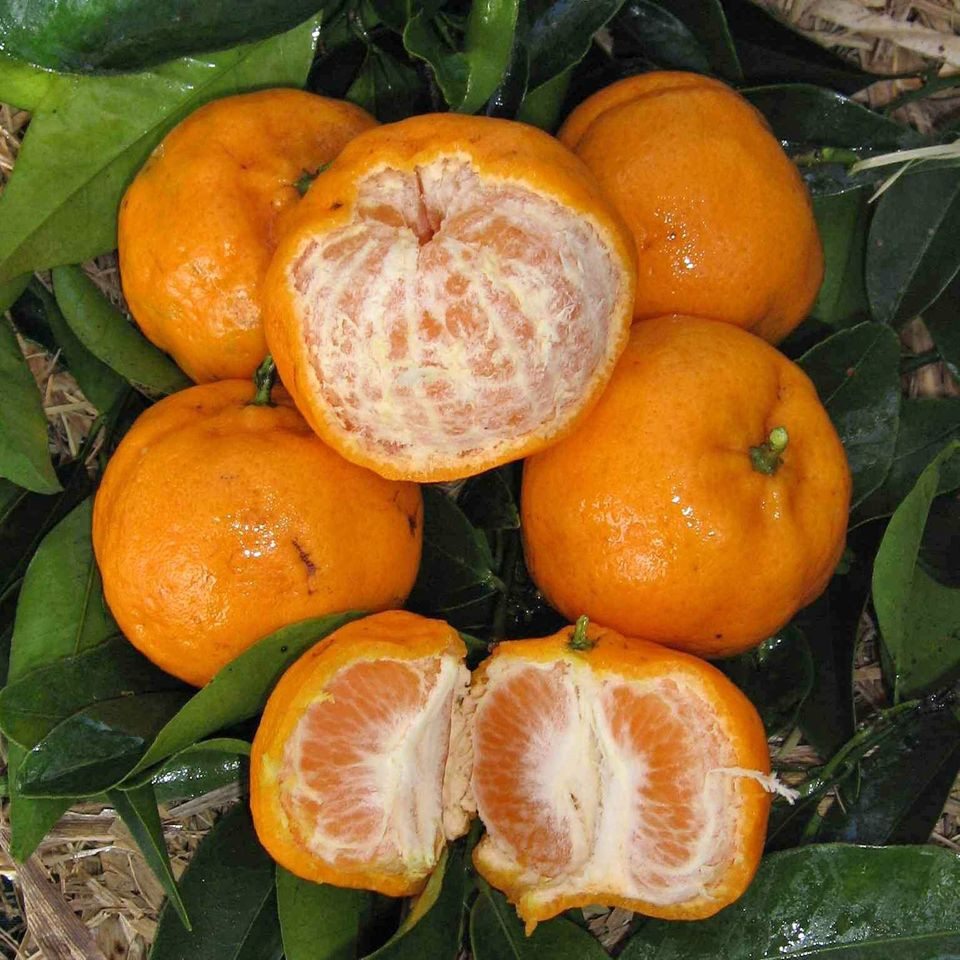
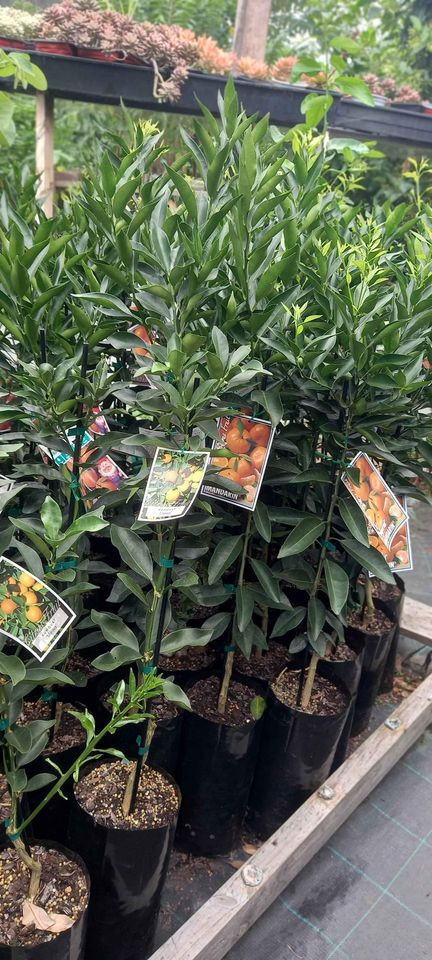
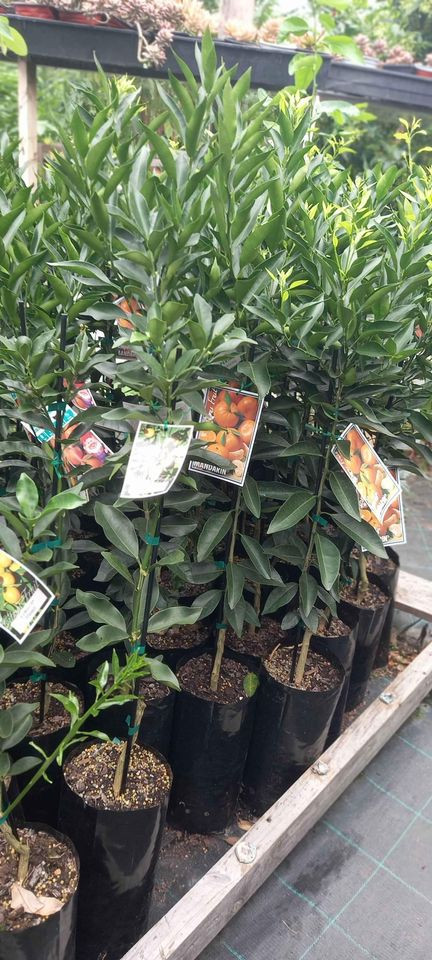
Emperor Mandarin
Category : PREMIUM GRAFTED CITRUS
Description
The Emperor Mandarin is a delightful citrus tree (Citrus reticulata) known for its ornamental value and delicious fruit. It features glossy-green leaves, fragrant creamy-white blossoms, and medium to large-sized fruits with puffy, pale orange skin that peels easily. The fruit is characterized by its sweet flavor, minimal seeds, and juicy flesh, making it an ideal choice for both adults and children alike.
Appearance
- Fruit: Emperor Mandarin fruits are medium to large in size with a puffy, pale orange skin that is easy to peel. The flesh is juicy, sweet, and typically seedless or contains minimal seeds, enhancing its appeal as a snack or culinary ingredient.
- Tree: The Emperor Mandarin tree is small to medium-sized, evergreen, and features glossy-green leaves that add to its ornamental value in garden settings. It may produce fragrant, creamy-white blossoms that attract pollinators.
- Habitat: Emperor Mandarin trees thrive in warm, subtropical to tropical climates with plenty of sunlight and well-drained soil. They are adaptable and can be grown in the ground to create a Mediterranean-style garden or in large pots as decorative patio or courtyard plants.
Uses
Culinary Uses:
- Fresh Consumption: Emperor Mandarins are enjoyed fresh due to their sweet, juicy flesh and easy-to-peel skin. They make a delicious and nutritious snack.
- Cooking and Baking: The sweet flavor and juicy texture of Emperor Mandarin fruits make them suitable for use in salads, desserts, sauces, and marinades.
- Juicing: The juice of Emperor Mandarins can be freshly squeezed and enjoyed as a refreshing beverage or used as a flavoring in cocktails and mocktails.
Medicinal Uses:
- Nutritional Benefits: Emperor Mandarins are rich in vitamin C, antioxidants, and dietary fiber, which support immune health, digestion, and overall well-being.
Cultivation Tips
- Planting: Choose a sunny location with well-drained soil for planting Emperor Mandarin trees. Ensure adequate spacing between trees or containers to allow for proper growth and air circulation.
- Watering: Provide regular watering, especially during dry periods, to maintain soil moisture and support fruit development.
- Fertilization: Apply citrus-specific fertilizer during the growing season to promote healthy foliage, flowering, and fruiting.
- Pruning: Prune Emperor Mandarin trees to remove dead or diseased branches, improve shape, and encourage new growth and fruit production.
- Pest Management: Monitor for common citrus pests such as aphids, scale insects, and citrus leaf miners. Use organic or chemical control methods as needed to protect tree health.
Conclusion
The Emperor Mandarin (Citrus reticulata) is a charming citrus tree valued for its ornamental appeal and delicious, easy-to-peel fruits. Whether grown in gardens to create a Mediterranean-style setting or in pots for decorative purposes, Emperor Mandarin trees offer both aesthetic beauty and flavorful rewards. With their sweet, seedless fruit and relatively low maintenance requirements, Emperor Mandarin trees are an excellent choice for home gardeners seeking to enjoy fresh, homegrown citrus fruits throughout the year.
Price : $65
$55
In Stock





.jpeg)
